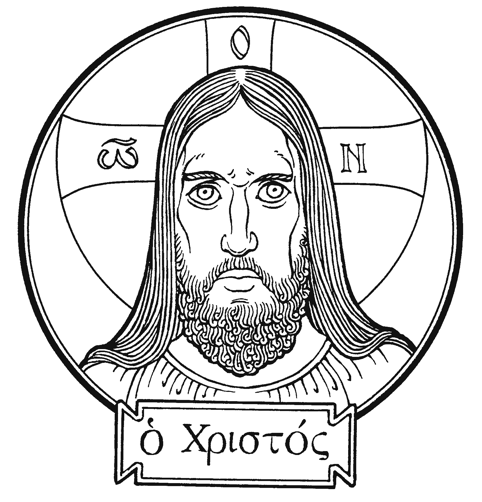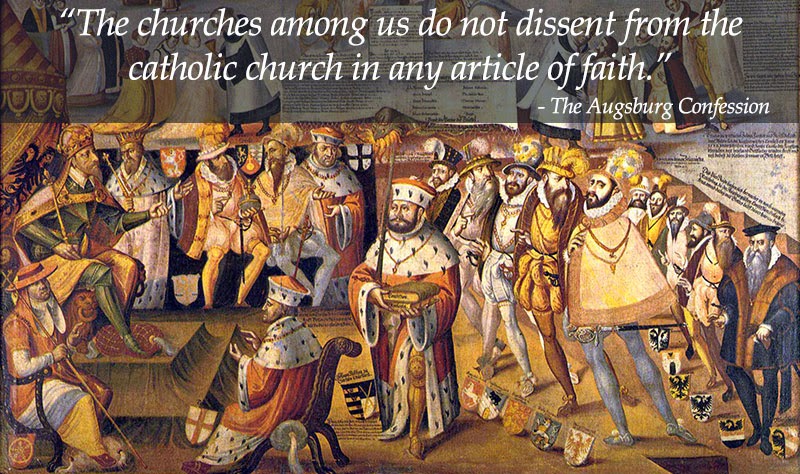 Grace, mercy, and peace to you from God our Father, and from our Lord and Savior, Jesus Christ, amen. The text for the sermon is the Gospel, which was read earlier.
Grace, mercy, and peace to you from God our Father, and from our Lord and Savior, Jesus Christ, amen. The text for the sermon is the Gospel, which was read earlier.
Jesus asks two questions to the disciples in our text, each one very important. The first question asked to the disciples is this: “Who do people say that the Son of Man is?” Obviously that question is subjective because depending on who you asked, you would receive a very different answer. And the answer that the disciples give, the answer of the people, is just that, different.
The people respond with the following answer: “Some say John the Baptist, others say Elijah, and others Jeremiah or one of the prophets.” Is Jesus someone of importance? Yes. Do the people know how important? No. Their answers range from a generic prophet or Jeremiah, one of the great prophets of old. Some place greater importance on Jesus and say that He is Elijah, one of the most notable prophets of the Old Testament. To be counted amongst the prophets of old does indeed show importance on Jesus’ character. The prophets were tasked with preaching the Word of God to the people, good words and bad. They were tasked with declaring the prophecies that pointed to God’s long-awaited Messiah, a promise made countless generations before in the Garden. Surely Jesus could not be any of these since they were all long dead
All of these showed how highly the people thought of Jesus, but there were some who were willing to upscale Jesus’ importance. Some declared Him to be John the Baptist. John the Baptist was important in his own right. He was the last of the Old Testament prophets. He was charged to be the forerunner of Jesus. John had done just that. He had instructed the people that Jesus was coming, but not only was He coming, He was here now among them. But like most of the Old Testament prophets, John the Baptists’ life did not end well, as he was beheaded by Herod. So, who could the Son of Man really be if He wasn’t one of the prophets of old?
The opinions of the people showed that they regarded Jesus very highly as a man of God, but they did not regard Him highly enough. They did not know Him as the one and only Son of God, Himself true God with the Father and the Holy Spirit from eternity. They were not much different from many people of our own day who praise Jesus as a great teacher but don’t know Him as their Savior and the only Savior of the world.
Have you ever wondered why Jesus asks the question? Does Jesus care what people think of Him? Yes and no. The greater question is does Jesus care who people think He is? The answer is an absolute yes, and with great reason. If you do not know who Jesus truly is and what He has come to do, then He will not know you. Jesus says earlier in Matthew: “So everyone who acknowledges me before men, I also will acknowledge before my Father who is in heaven, but whoever denies me before men, I also will deny before my Father who is in heaven.”
That is why Jesus asks the next question, the all-important question that must be asked to all: “But who do you say that I am?” That is the question of the day, not just for the disciples, but for everyone. As far as the disciples were concerned, this was Jesus, their Lord and Master. What more of a response was Jesus looking for from them?
There is plenty more of a response that Jesus was looking from the disciples, and there is plenty more of a response that Jesus is looking from you. You can say, “I know who You are; You’re Jesus!” but what does that mean? Many people can look at a picture and say that the man in the picture is Jesus. But what does that mean? People from outside of Christianity can say who Jesus is, albeit wrongly, but what does that mean? There is a very specific answer that Jesus is looking for, one that will determine your eternal future. And since this is your eternal future, you had better make sure you have the right answer.
Peter, acting as spokesman for the disciples responds to Jesus by saying, “You are the Christ, the Son of the living God.” That’s the answer that Jesus is looking for. That’s the only response that Jesus is looking for. What better answer could there be but that? Thomas, on the evening of Christ’s resurrection gives a response that I believe is just as good: “Thomas answered him, “My Lord and my God!”
For the here and now, Peter recognized Jesus for who He was. That meant that Peter recognized Jesus as the promised Messiah foretold of so long ago. He understood Jesus to be the “Lamb of God that takes away the sin of the world.” Not only was Jesus a teacher, a healer, a miracle worker, He would do something that no one else has ever done or would be able to do: give His life so that we would have life. St John writes, “Greater love has no one than this, that someone lay down his life for his friends.” That is exactly what Jesus has done. He has given His life so that you would have life and have it abundantly. He gave His life so that all of your sins would be forgiven. He gave His life so that you would be able to stand before the Holy God, not as a person condemned by their sins to hell, but rather as one who has been redeemed by the blood of the Lamb and now has the holiness and righteousness of Christ.
That same question has been posed to you. What matters is how that question is answered. That same confession of faith Peter made is the same one that you and I made when we confirmed our baptismal confession of faith. That same confession of faith that Peter made is the same one that you and I make today. Christ empowers us in our confession of Him today to assault the very gates of hell. He hears the promises made in Baptism and confirmation and in every confession, and He empowers us through the gift of His Spirit to assault hell itself and win. On the rock of the confession, that Jesus is the Christ, the Son of the living God, Christ has built His Church and not even hell’s gates can withstand its onslaught.
A lot of people in our day don’t understand the true meaning of the Christ. Some say Jesus was a great moral teacher, but nothing more. Others see Him as a life coach. Still others see Him as an example. Jesus is more than just a moral teacher, life coach or an example. Jesus is the Savior of the world, the Lamb of God who gave Himself as a sacrifice so that you and I might have everlasting life.
Today, we confess alongside Peter and all the disciples, the whole Christian Church, the saints of old and the saints yet to be – “[Jesus is] the Christ, the Son of the living God.” In Jesus’ name, amen. Now the peace of God that passes all understanding, keep your hearts and minds through faith in Christ Jesus, amen.



